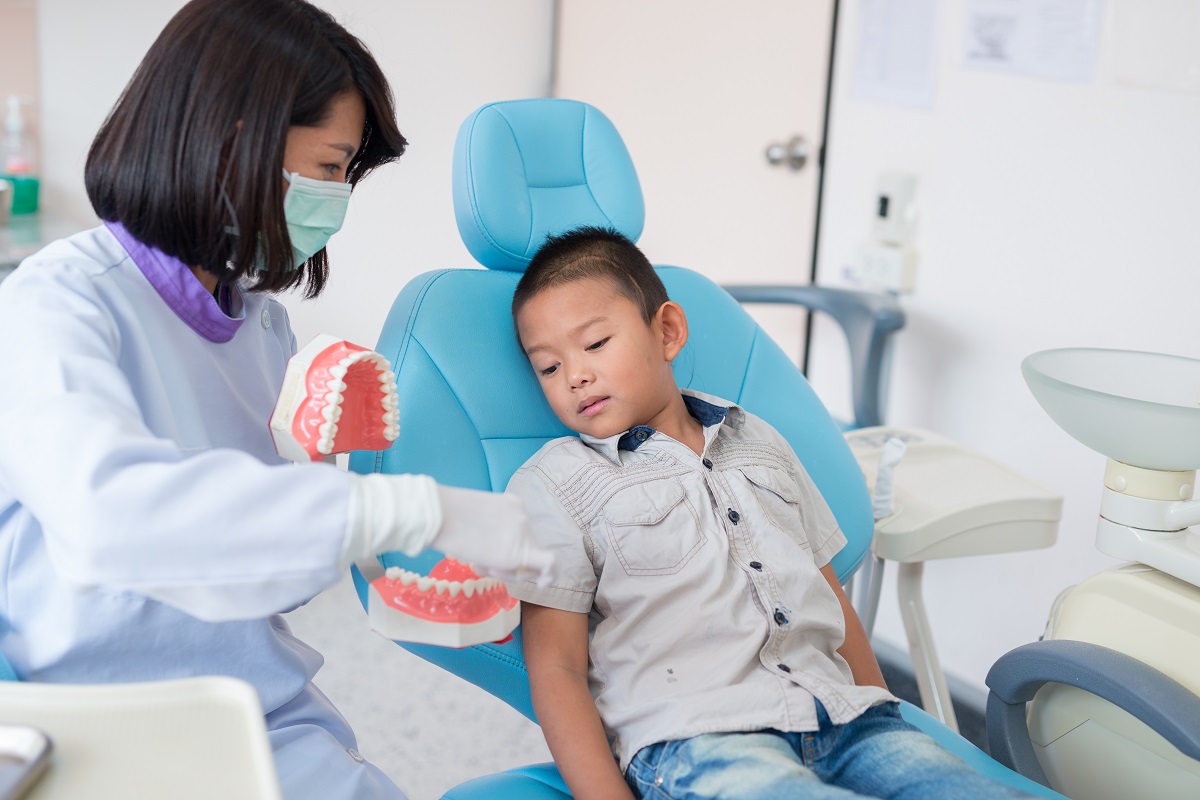5 Beneficial Dental Treatment for Kids

5 Beneficial Dental Treatment for Kids
What are the recommended dental treatments for kids?
- Regular Checkup and Oral Prophylaxis
- Sealants
- Fillings
- Fluoride Treatment
- Extraction
If you’re a parent, you might be wondering when to schedule your child for a dental appointment. You wouldn’t want cavities to form on your kid’s teeth, but you might not know the best way to address this issue. To help you, here are some of the best dental treatments for kids. Keep on reading!
If you’re interested in dental care for your child, it’s advisable to go to a pediatric dentist. They have the training and experience to provide dental care to your kids—from infancy age through their teen years. They provide oral health exams, preventive care, and treatment for dental problems.
Regular Checkup and Oral Prophylaxis
A trip to the dentist shouldn’t only be due to an aching tooth. To prevent cavities and other oral problems, it’s also recommended to schedule an appointment for a regular checkup. Generally, it’s advised to bring your child to the dentist after their first birthday or within six months of their first tooth coming out—which one comes first. If you’re unsure, you can call ahead for advice.
During a regular checkup, the pediatric dentist will perform the following:
- Inspect the teeth for cavities
- Look for early signs of gum disease
- Perform oral prophylaxis or also known as teeth cleaning
During the teeth cleaning treatment, the dentist will remove plaque or the thin film of bacteria in your child’s teeth. When neglected, these can turn into tartar or hard deposits in and between teeth. The good news is that both can be handled during this appointment.
A regular checkup can help reduce a child’s fear or anxiety associated with dentists. This will help them get used to dental checkups as they grow older.
Sealants

Although brushing and flossing are important parts of a child’s oral hygiene regime, they might need extra help when cleaning hard-to-reach spots on top of the teeth. Cavities can develop on the grooves and cracks on their teeth especially if it’s not thoroughly cleaned often. Because of this, your pediatric dentist might also recommend a sealant.
Sealants are thin coatings that are applied on chewing surfaces. This will bond with the depressions and grooves of the teeth to form a protective layer. This way, the small spaces are filled in, which makes it easier to brush and clean. It also makes the teeth less likely to keep in plaque.
Sealants are recommended for newly erupted premolars and molars on your child. It can last year when taken care of properly. If your child’s sealant comes off, inform your dentist to have it reapplied again.
Fillings
As mentioned before, your child might still be learning and getting used to brushing and flossing properly. Because of this, it can be common for cavities to develop in their teeth. As baby teeth are temporary and will be replaced by permanent teeth after they fall out, you might be wondering if the problem can be delayed.
But all cavities, even those on baby teeth, should be addressed as soon as possible. When untreated, this can cause pain and discomfort for your child, which makes it hard for them to eat or speak normally. Other than that, it could also lead to other problems such as infection.
When a cavity is detected by your dentist, they could treat it using a filling. First, the decayed material will be removed and cleaned. After that, the space will be shaped before being filled with a tooth-colored composite resin material. This treatment can help prevent the decay from worsening and will help preserve the tooth. To make the experience comfortable for your child, your dentist might recommend a local anesthetic if necessary.
Fluoride Treatment

Fluoride is a topical solution applied on top of the teeth. It’s a substance that can rebuild weakened tooth enamel and reverse early signs of tooth decay. This is vital because weak enamel can make your child’s teeth more vulnerable to oral bacteria that cause cavities. As a bonus, fluoride can also reduce teeth sensitivity.
Fluoride is present in toothpaste and mouthwash in low amounts. This can help maintain the health of your child’s teeth at home. For higher concentrations, a pediatric dentist can apply it in gel or varnish form.
A fluoride treatment is recommended every three to four months, but a pediatric dentist might advise differently depending on the needs of your child. The procedure is fast and painless, but the benefits are numerous. After the treatment, don’t feed or let your child drink for a minimum of 30 minutes. Other than that, it’s also advised not to brush or floss within the next 6 hours. This way, the fluoride will have time to work.
Extraction
With dental care, it’s better to start early. Teach your kids good oral habits like brushing twice a day and learning how to floss. It’s also recommended to limit some foods that might cause problems later. These include sugary foods such as candy, juices, and the like. These can cause cavities without proper oral care.
If your kid’s teeth are properly cared for, they won’t need to have a tooth extracted. Baby teeth naturally come out if the permanent tooth is ready to erupt. But if the tooth is suffering from severe decay or is too fractured to repair, a pediatric dentist might recommend an extraction. Sometimes, it’s also necessary to remove a tooth if it has misshapen roots that prevent it from naturally coming out.
A pediatric dentist will only recommend extraction as the last resort. Premature extraction can cause complications and misaligned teeth. This is because the other baby teeth may shift to the gap before the permanent tooth can come out. If your kid’s teeth are extracted due to decay or infection, a dentist might use a space maintainer to prevent this problem.
Key Takeaway
Most children experience dental anxiety, but it can be fixed when you start them early. Make sure to bring them to regular checkups often, so a dentist can check if they need treatments such as oral prophylaxis, sealants, fillings, fluoride application, or extraction.
If you’re interested in booking a dental treatment for kids, you can send us a message here at Casipit Dental Group! We have pediatric dentists that are trained and experienced in providing care for young patients, so you can be assured that your child will get the treatment they need.













